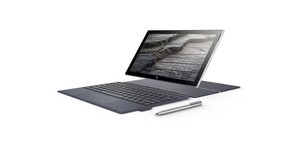ARM acquires eSIM specialist Simulity
July 5, 2017 | 10:38
Companies: #arm #foresight #simulity-labs #softbank

ARM has officially acquired Simulity Labs, a company specialising in embedded subscriber identity module (eSIM) connectivity, as part of its continuing push into the connected Internet of Things (IoT) market.
Now under Japanese ownership following its acquisition by SoftBank for £24.3 billion last year, ARM appears to be more than willing to splash its newfound cash around in an effort to maintain its lion's share of the Internet of Things (IoT) and embedded computing markets. Simulity, its first major acquisition since the SoftBank deal closed, telegraphs a desire to become a highly-integrated one-stop-shop for IoT technologies, adding connectivity in the form of an eSIM platform to ARM's low-power processing capabilities.
For Simulity's former owner Foresight, the deal is a major payday: Foresight acquired Simulity just eight months ago for £4 million, making ARM's offer of £11.7 million - £11.4 million paid when the deal completed and a further £300,000 to be paid in a year's time subject to certain unspecified conditions - a near-fourfold return on investment. 'The institutional backing of Foresight allowed us to scale the business and continue to build our world leading team and technology, whilst also providing huge credibility in discussions with large global corporates,' said Simulity founder and chief executive Stéphane Fund of the company's former paymaster. 'Foresight has worked closely with us, particularly during the exit process.'
'We are delighted to have supported the management team at Simulity in the rapid growth and transition of their business and successful sale,' added James Livingston, Foresight partner and director of Simulity up until ARM's acquisition. 'The vision of the management team and their deep market knowledge enabled them to develop pioneering technology which will be a key enabler of the IoT market.'
A variant of the subscriber identity module (SIM) technology first introduced by the European Telecommunications Standards Institute (ETSI) for mobile phone use, eSIMs are designed to remain permanently integrated into a device in place of today's removable SIM cards. Rather than swapping a physical card to change mobile providers, as with existing SIM cards, eSIMs support remote provisioning - allowing devices to switch from one provider to another via a configuration update rather than a physical modification. This remotely-updatable nature, coupled with a smaller footprint and increased reliability compared with a socket and SIM card, has made them a popular choice for IoT connectivity.

MSI MPG Velox 100R Chassis Review
October 14 2021 | 15:04








Want to comment? Please log in.